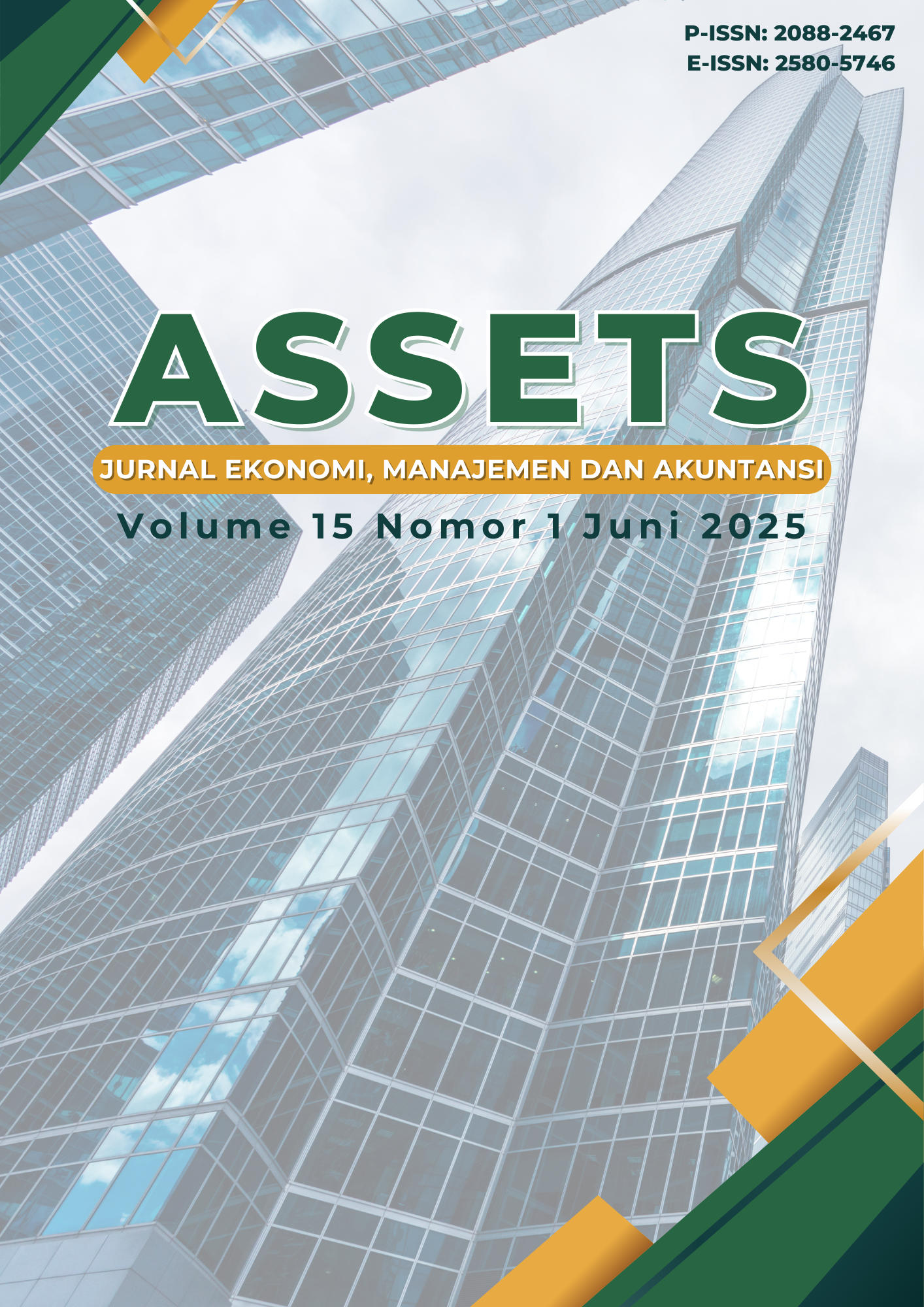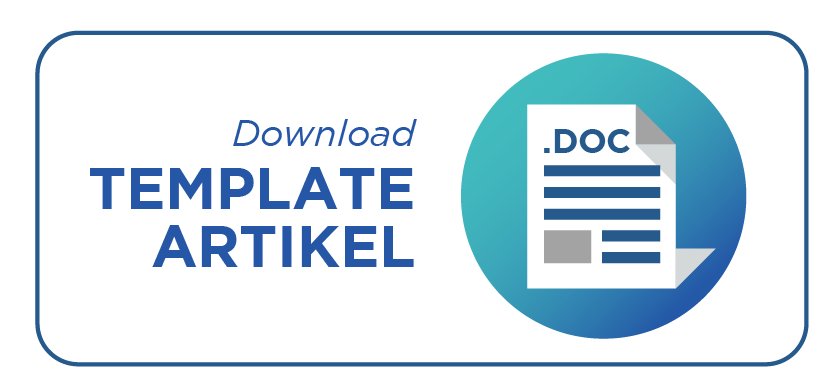VALUATION OF WAQF ASSETS ACCORDING TO PSAK 412 TO REALIZE ACCOUNTABILITY - MAQASID AL-SHARIAH PERSPECTIVE
DOI:
https://doi.org/10.24252/assets.v15i1.56349Keywords:
Waqf Asset, Valuation, Presentatio, Maqoshid SyariahAbstract
The purpose of this study is to analyze the assessment methods and presentation of waqf assets in accordance with PSAK 412, as managed by the Nazir YSU, and to examine the relationship between the implementation of PSAK 412 and the accountability – Maqashid Sharia Perspektif. This research employs a qualitative method using secondary quantitative data supported by interviews and direct observations of the waqf assets. The results indicate that several waqf assets have not been recorded, financial reports are incomplete and do not fully comply with PSAK 412. The analysis results show that the valuation and presentation of cash waqf assets have been implemented according to standards, and the accounting treatment of waqf assets transferred to the mauquf alaihi complies with the standards. However, the accounting treatment of physical waqf assets still managed by the foundation needs improvement to meet accounting standards in terms of both valuation and presentation. The implementation of PSAK 412 clearly realizes accountability from the perspective of Maqashid Sharia, ensuring the protection of religion, intellect, life, wealth, and lineage
References
Ammeter, A. P., Douglas, C., Ferris, G. R., & Goka, H. (2004). A social relationship conceptualization of trust and accountability in organizations. Human Resource Management Review, 14(1), 47–65. https://doi.org/10.1016/j.hrmr.2004.02.003
Antonio, M. S., Laela, S. F., & Jazil, T. (2020). ABU ZAHRAH’S MAQASID SHARIA MODEL AS A PERFORMANCE MEASUREMENT SYSTEM. Jurnal Akuntansi Multiparadigma, 11(3). https://doi.org/10.21776/ub.jamal.2020.11.3.30
Arfid Fathun Nadyan, & Dewi Rahmi. (2023). Pengaruh Pengetahuan, Religiositas, Persepsi, dan Media Informasi Terhadap Minat Investor Melakukan Wakaf Saham. Jurnal Riset Ilmu Ekonomi Dan Bisnis, 53–60. https://doi.org/10.29313/jrieb.v3i1.1926
Arianty, E. (2020). How to Improve Sharia Accountability for Sovereign Sukuk in Indonesia. IQTISHADIA, 13(1), 53. https://doi.org/10.21043/iqtishadia.v13i1.6618
Arianty, E. (2023). Akuntansi Syariah: Akuntansi Wakaf. In H. Rofizar & H. Hayati (Eds.), Akuntansi Syariah (Vol. 1, pp. 167–188). Az-Zahra Media Society.
Arianty, E., Mahrus, M. L., Hadi, M., & Indrawati, I. (2023). Strengthening Sharia Accountability and Transparancy for the Optimization of Cash Waqf Linked Sukuk. Riset Akuntansi Dan Keuangan Indonesia, 8(2), 159–175. https://doi.org/10.23917/reaksi.v8i2.2380
Asyari, A., Hoque, M. E., Susanto, P., Begum, H., Awaluddin, A., Marwan, M., & Mamun, A. Al. (2024). Online cash waqf behavioral intention: the role of knowledge of cash waqf and trust. Journal of Islamic Marketing, 15(11), 2864–2890. https://doi.org/10.1108/JIMA-07-2023-0224
Ayedh, A. (2018). Waqf accountability in the Republic of yemen: an empiRical analysis. In QIJIS: Qudus International Journal of Islamic Studies (Vol. 6, Issue 2).
Baihaqi, J., Hidayah Islamiah, M., & Aris Munandar, M. (2021). PENGUATAN AKUNTABILITAS WAKAF (Ilustrasi pada Kasus Wakaf Uang dan Wakaf Saham).
Beik, I. (2022). Indeks Implementasi WCP dan Penguatan Perwakafan.
Biswan, A. T., & Mahrus, M. L. (2020). Praktik Akuntansi Keuangan Menengah (Vol. 4). Unit Penerbitan PKN STAN .
Carmona, S., Donoso, R., & Reckers, P. M. J. (2013). Timing in Accountability and Trust Relationships. Journal of Business Ethics, 112(3), 481–495. https://doi.org/10.1007/s10551-012-1273-y
DSAK Ikatan Akuntan Indonesia. (2022). Pernyataan Standar Akuntansi Keuangan (PSAK) Nomor 216 tentang Aset Tetap.
DSAK Ikatan Akuntansi Indonesia. (2024). Standar Akuntansi Keuangan Syariah Nomor 412 tentang Akuntansi Wakaf. Jakarta: Ikatan Akuntansi Indonesia.
Farwell, M. M., Shier, M. L., & Handy, F. (2019). Explaining Trust in Canadian Charities: The Influence of Public Perceptions of Accountability, Transparency, Familiarity and Institutional Trust. VOLUNTAS: International Journal of Voluntary and Nonprofit Organizations, 30(4), 768–782. https://doi.org/10.1007/s11266-018-00046-8
Htay, S., Mohamed, M., & Osman, A. F. (2013). Determinants of cash waqf giving in Malaysia: survey of selected works. IIUM Repository Economics Business.
Kieso, D. E., Weygandt, J. J., & Warfield, T. D. (2018). Intermediate Accounting: IFRS Edition (3rd ed.).
McAdams, D. M. W. S. G. and A. McClellan. (2003). Urban School District Accountability Systems. Denver: Education Commission of the States and the Center for Reform of School Systems.
Prasojo, P., Yadiati, W., Fitrijanti, T., & Sueb, M. (2023). Exploring the relationship between intellectual capital and maqasid sharia-based performance: the moderating role of sharia governance. Journal of Islamic Marketing, 14(8), 2130–2146. https://doi.org/10.1108/JIMA-07-2021-0226
Rahmansyah, W. (2021). PENGAKUAN ASET WAKAF OLEH WAKIF PERUSAHAAN DALAM PRODUK CASH WAKAF LINKED SUKUK (SINKRONISASI LAPORAN KEUANGAN NADZHIR DAN WAKIF DALAM PSAK 112). In El Wasathiya (Vol. 9, Issue 1). https://wakafhasanah.bnisyariah.co.id/project/98.
Rosly, A. S. (2010). Shariah parameters reconsidered. International Journal of Islamic and Middle Eastern Finance and Management, 3(2), 132–146. https://doi.org/10.1108/17538391011054372
Siswantoro, D., Rosdiana, H., & Fathurahman, H. (2018). Reconstructing accountability of the cash waqf (endowment) institution in Indonesia. Managerial Finance, 44(5), 624–644. https://doi.org/10.1108/MF-05-2017-0188
Sukmana, R. (2020). Critical assessment of Islamic endowment funds (Waqf) literature: lesson for government and future directions. Heliyon, 6(10). https://doi.org/10.1016/j.heliyon.2020.e05074
Sukmana, R., Sholihin, M., Lestari, Y. D., Ali, K. M., Indrawan, I. W., Sari, I. F., Saidah, F., Putri, A. N. W., & Manila, H. I. (2021). Laporan Indeks Wakaf Nasional 2021.
Yaacob, H., Petra, S., Sumardi, A., & Nahar, H. S. (2015). Accountability through accounting and reporting lenses. Humanomics, 31(3), 299–313. https://doi.org/10.1108/H-07-2013-0049
Yasmin, S., & Ghafran, C. (2019). The problematics of accountability: Internal responses to external pressures in exposed organisations. Critical Perspectives on Accounting, 64, 102070. https://doi.org/10.1016/j.cpa.2019.01.002
Yasmin, S., Ghafran, C., & Haslam, J. (2021). Centre-staging beneficiaries in charity accountability: Insights from an Islamic post-secular perspective. Critical Perspectives on Accounting, 75, 102167. https://doi.org/10.1016/j.cpa.2020.102167
Downloads
Published
How to Cite
Issue
Section
License

This work is licensed under a Creative Commons Attribution-NonCommercial-ShareAlike 4.0 International License.



























